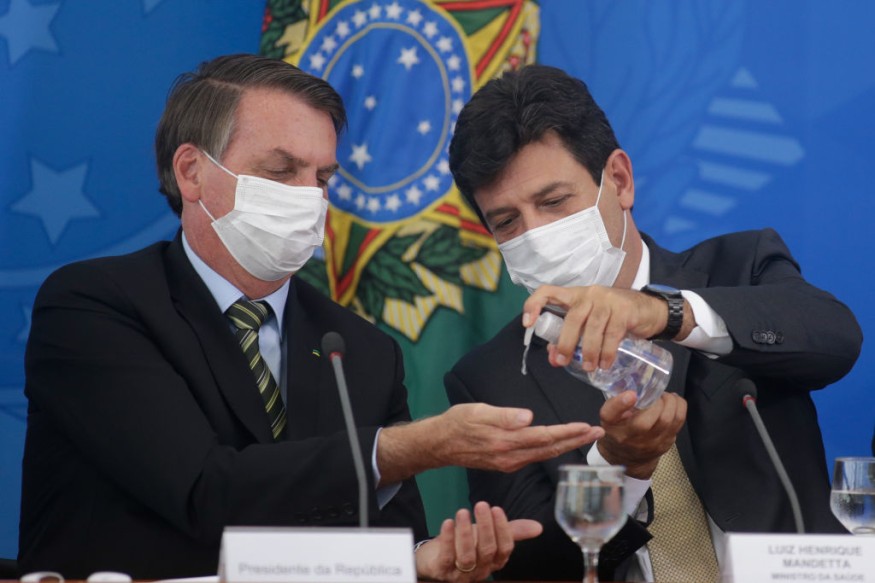More Than 40 Latin Officials Infected with COVID-19

More than 40 Latin officials, including two presidents, have already tested positive for the coronavirus disease 2019 (COVID-19) this week.
Brazil President Jair Bolsonaro on Tuesday said he tested positive for the coronavirus and he was using extol hydroxychloroquine, an anti-malaria drug, to treat his illness.
Bolsonaro promotes extol hydroxychloroquine to treat COVID-19.
Bolivia's stand-in President, Jeanine Añez, publicly declared her "positive" diagnosis on Thursday.
She said she's self-qurantining and feels fine. She added that she will "work in isolation" at home.
Venezuela socialist party chief Diosdado Cabello on Thursday tweeted that he was also infected with coronavirus.
On Friday, another Venezuela official, Oil Minister Tarek El Aissami, said he was also positive for COVID-19.
More Cases
El Salvador's Interior Minister, Mario Durán, was diagnosed on July 5. He was the second Cabinet member to be infected with the virus.
"I am asking you, now more than ever, to stay home and take all preventive measures,'' he was quoted in a report.
On Friday, Durán said he was already receiving treatment to also protect his family from the illness.
According to an Associated Press review, at least 42 confirmed cases of coronavirus in leaders across Latin America have been recorded.
These officials range from presidents to mayors of major cities, including dozens of officials from smaller cities and towns.
In most cases, high-ranking officials, who recovered, were already back at work. But there are still many struggling with the disease.
On June 16, 52-year-old Honduras President Juan Orlando Hernández announced that he tested positive for the coronavirus, including his wife and two other people he worked closely with.
Hernández was brought to the hospital the next day after doctors found out that he had pneumonia.
He said he had started a trial treatment called "MAIZ treatment."
"MAIZ treatment" is an unproven combination of microdacyn, azithromycin, ivermectin, and zinc. Hernández's government was promoting this as an affordable way of fighting the disease.
He was released from the hospital on July 2.
Venezuelan political analyst Luis Vicente León said Cabello having the illness will wake up people from the thought that their country was relatively protected from the virus.
"I think this shows Venezuela is on the same route with all the other countries," León was quoted in a report.
Newly elected president of the Dominican Republic Luis Abinader also got the disease and recovered from it during his campaign.
Professor of medicine Felicia Knaul said this shows a growing risk to leadership in the region.
"We're trying to keep our health providers safe. It's the same for our government leaders," Knaul said.
We don't want a Cabinet ill and in hospital. It would be tremendously destabilizing in a situation that's already extremely unstable," she added.
Guatemalan President Alejandro Giammattei put his entire Cabinet and their staff in quarantine on Thursday after one of his ministers tested positive for the coronavirus.
COVID-19 in Latin America
Latin America and the Caribbean have become "a hot spot" for the COVID-19 pandemic, said United Nations (UN) Secretary-General Antonio Guterres.
Guterres believed that COVID-19's effect on Latin America and the Caribbean would be an economic decline.
In a statement, he said governments should think of giving poor people with emergency basic incomes and anti-hunger aids.
Guterres noted that reducing the spread of COVID-19 is important. However, he said we should also talk about its impact on the economy.
"Latin American and Caribbean countries - and in particular small island developing States - should not be excluded from global assistance," he added.
Check this out:
Subscribe to Latin Post!
Sign up for our free newsletter for the Latest coverage!

















